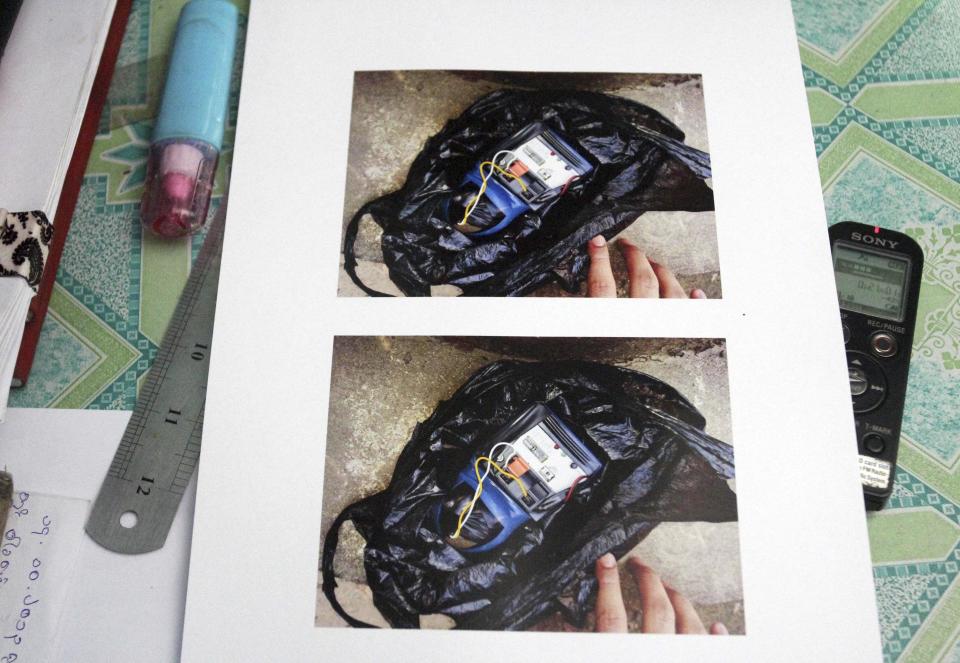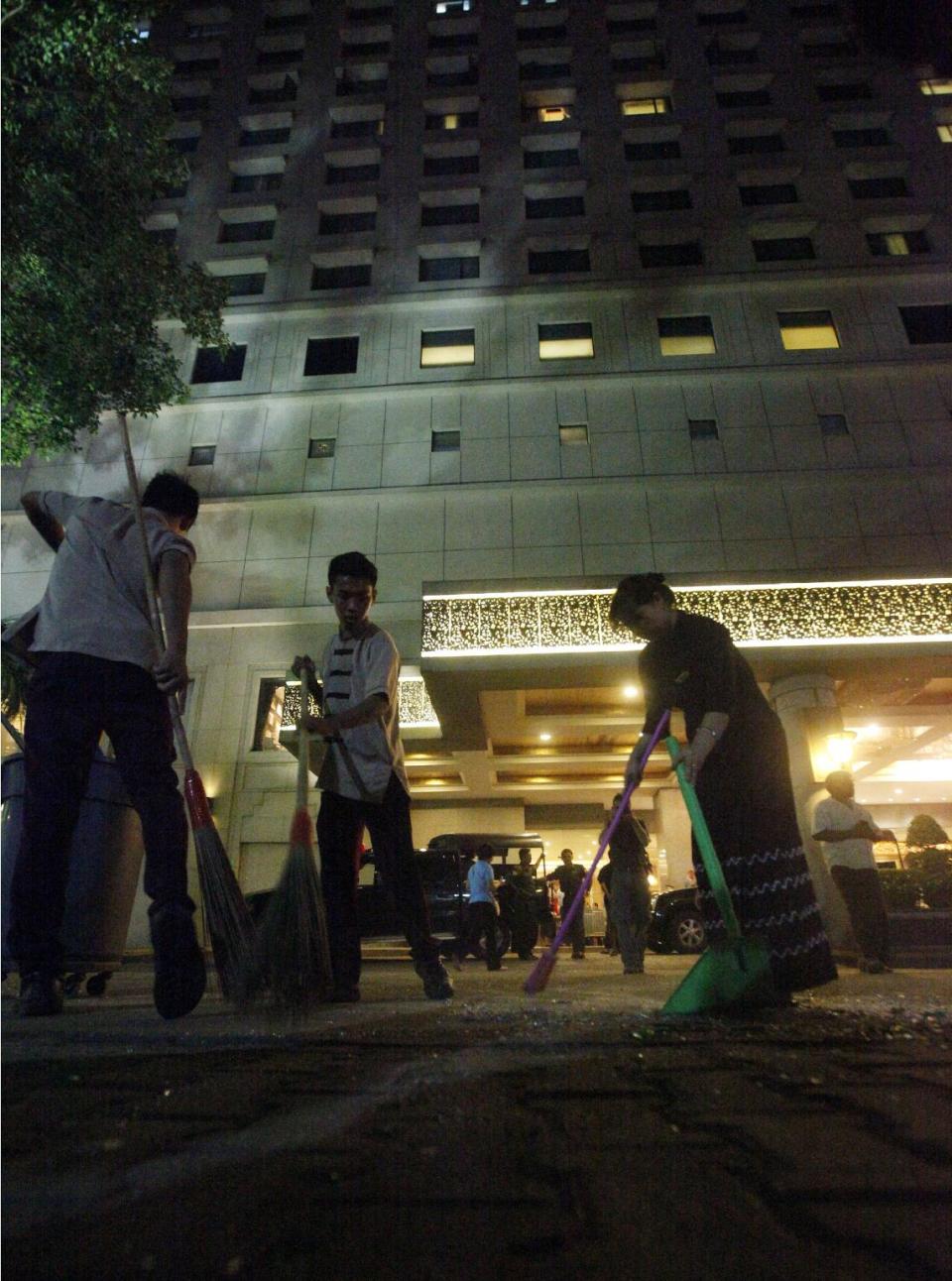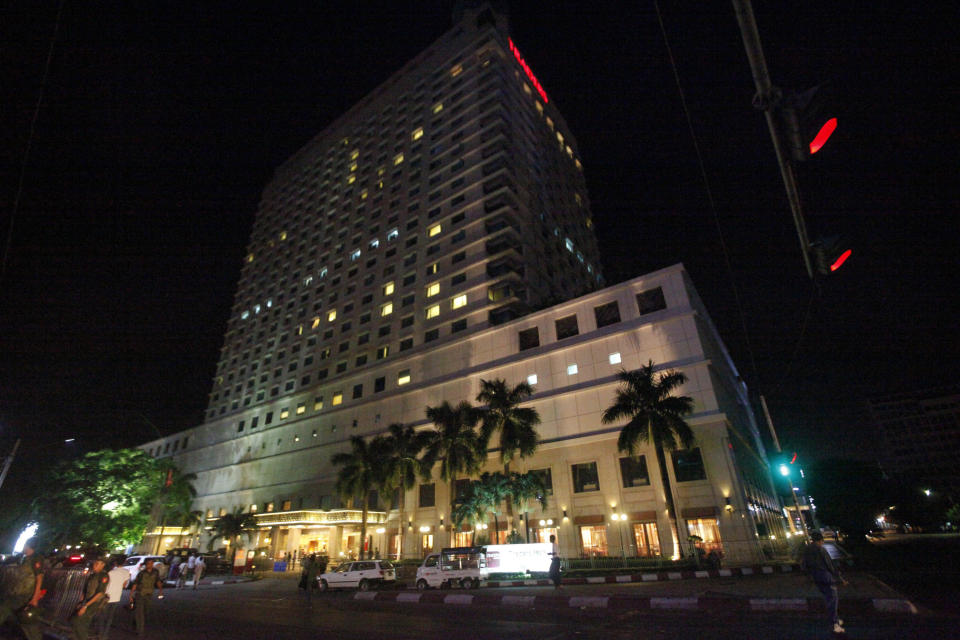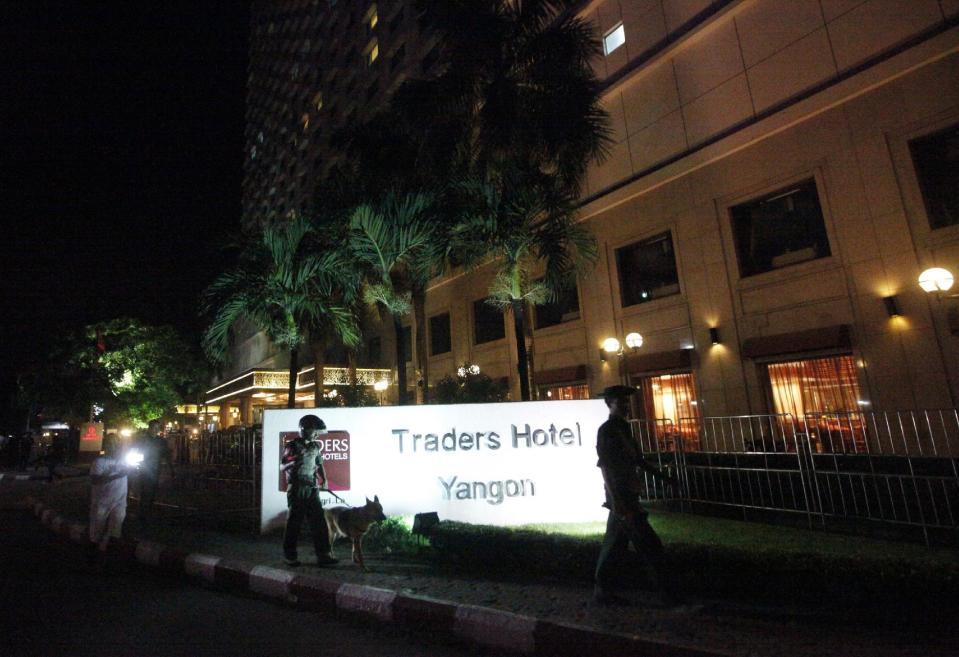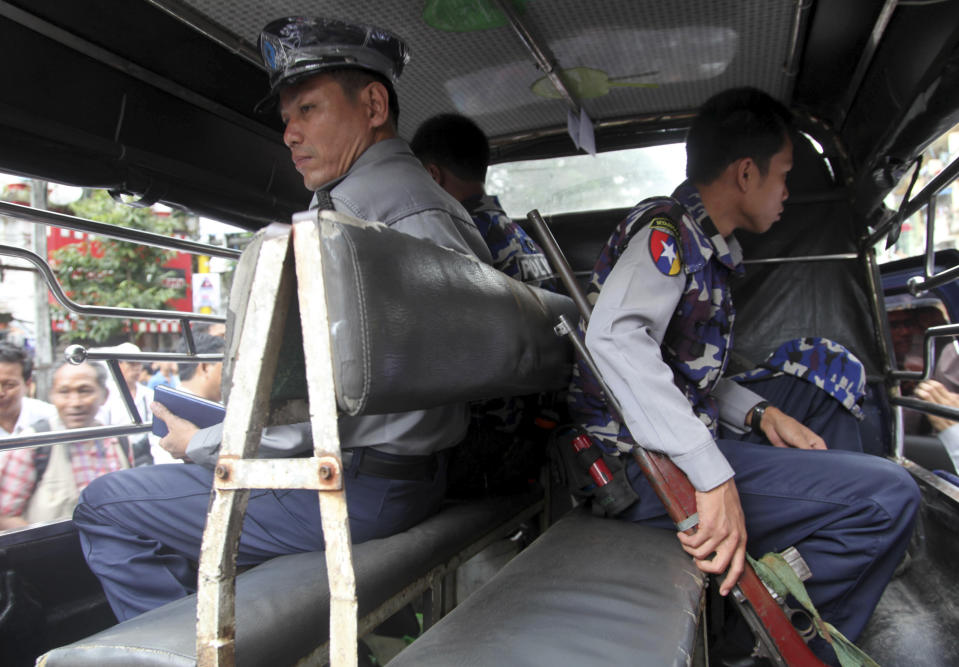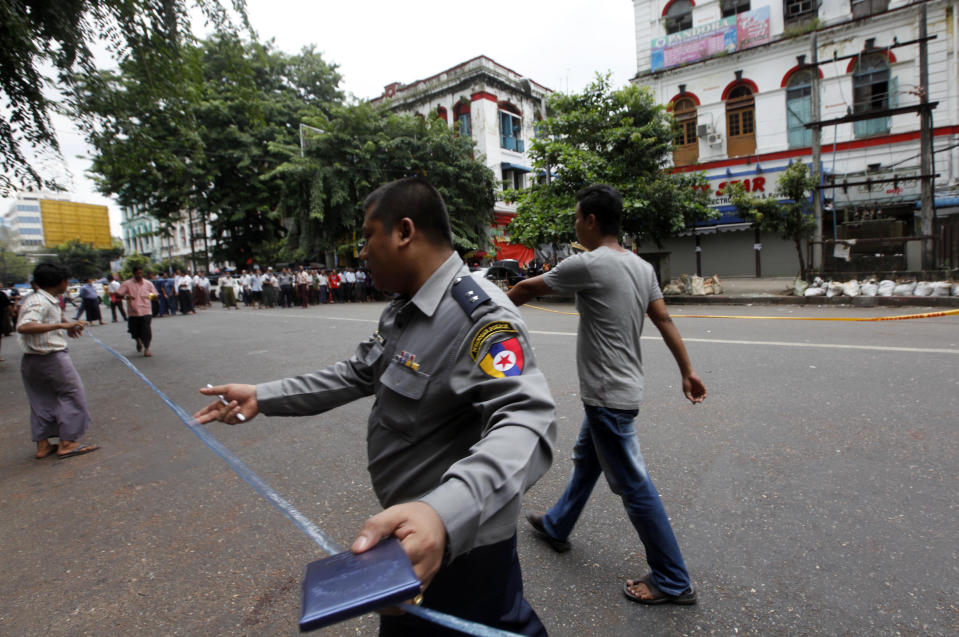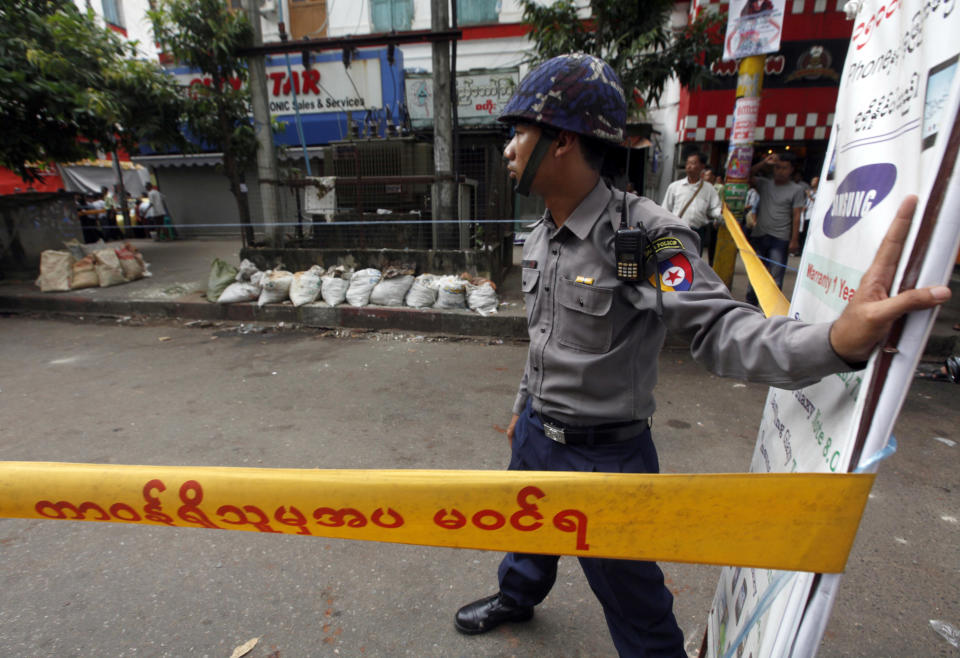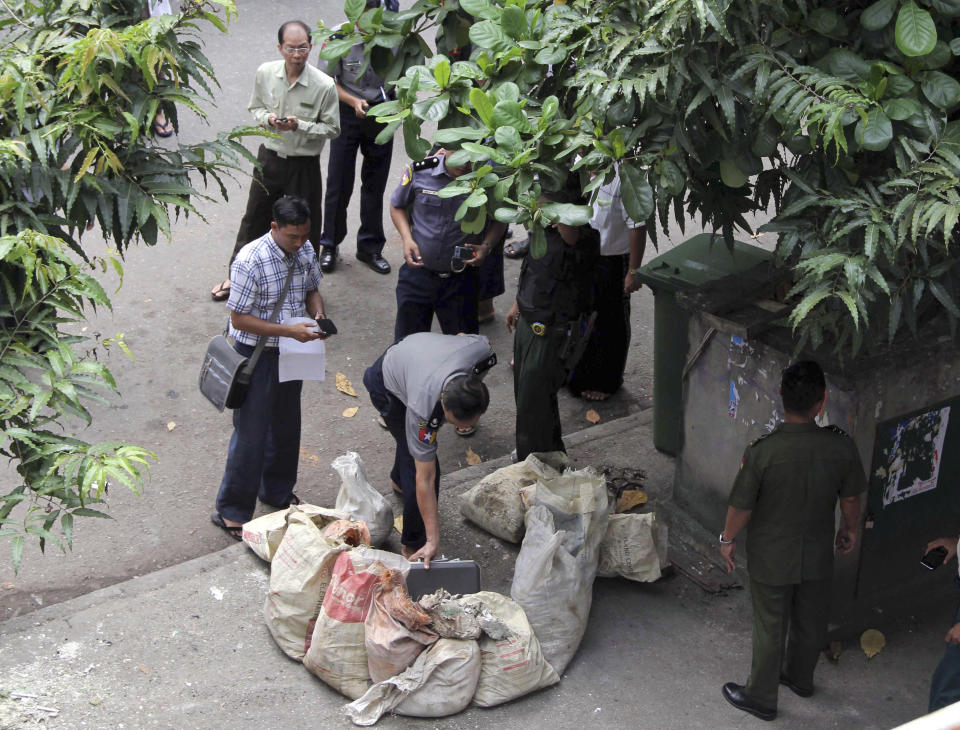Police: Small time bomb caused Myanmar hotel blast
YANGON, Myanmar (AP) — An explosion that injured an American guest in one of the ritziest hotels in Myanmar's main city was caused by a small, homemade time bomb placed in her room, police said Tuesday.
It was the most high-profile in a series of low-intensity explosions that the government alleges is an attempt to tarnish the image of the budding democracy as it emerges from decades of oppressive military rule.
Officials said the attacks appear to be organized, with a restaurant, two bus stops, Buddhist temples and a market all targeted within the last week.
No one has claimed responsibility.
The crude device that went off just before midnight Monday at the Traders Hotel — popular among foreign tourists, businesspeople and visiting government officials — was hidden in the bathroom in an American family's room on the ninth floor.
The 43-year-old woman was wounded but her husband and two children, aged 5 and 7, escaped injury.
There was no indication they had been targeted.
Police officer Myint Htwe said three suspects linked to the explosion in the heart of Yangon had been detained. A fourth suspect, apparently captured on the hotel's security camera, was seized by authorities in Mon state, according to state-run TV.
Small bombings occurred frequently in Myanmar during 50 years of military rule, most often blamed on armed exiled groups or ethnic rebels. But they have been rare since the nominally civilian government of President Thein Sein took office in 2011 and started implementing political and economic reforms.
Many activists and rights groups, however, say Myanmar is still far from free.
There have been at least seven bomb blasts since Friday, leaving several people wounded.
Hours after the Traders Hotel attack, a small bomb went off in Saggaing near Mandalay in the restaurant of a hotel used by tourists, and another followed soon after in Taw Oo Pone Nya Shin Pagoda, said police officer Tin Maung Aye. He said no one was hurt.
In earlier attacks some bombs were attached underneath trucks or hidden in bags.
The reasons behind the bombings remained a mystery late Tuesday.
"Given the frequency and location of these blasts it's reasonable to assume the effort was organized," said Matthew Smith, a Myanmar expert who directs the advocacy group Fortify Rights. "But if the perpetrators intended to send a clear message, they failed."
The government speculated the bombings were being organized by individuals or groups who want to smear the country's image as it prepares to take leadership of the Association of Southeast Asian Nations regional grouping in 2014.
It is also hosting the Southeast Asian Games, a showcase sporting event, later this year.
"Someone or some organization" wants to "make the international community misunderstand the situation of stability and peace in Myanmar," said Ko Ko Hlaing, a political adviser to the president.
He ticked off a wide range of potential suspects, from political dissidents to groups unsatisfied with recent reforms. Religious extremists inside the country could not be ruled out, he said, nor could terrorists coming from outside to wage jihad.
The government is still fighting Kachin and other scattered ethnic groups and the country has been struggling with sectarian violence between Buddhists and Muslims.
Aung San Suu Kyi, the Nobel Peace Prize laureate who now serves as the opposition leader in parliament, called the attacks "deliberate acts to create panic."
She said it was important that authorities "urgently expose" those responsible.
___
Associated Press writers Aye Aye Win, Esther Htusan and Todd Pitman contributed to this report.
